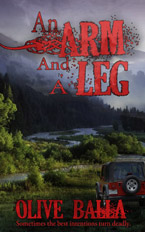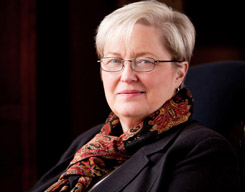by Olive Balla
I just drove by, for the umpteenth time, a sign outside a shop characterizing something going on inside as a “Huge Bead Sale.” Each time I pass the sign, my eyes are drawn to it and I begin, against my will, to channel my high school English teacher. What would one do with a huge bead, anyway? Plant begonias in it, perhaps? And then a battle ensues between my Language Purist and my inner Wannabe Writer. Ugly, grammar-murdering thoughts lay siege to the edifice of proper language usage. Signage thrift aside, the specificity alone has merit. Much better than “Oodles of beads on sale. Come on in and browse.”
By the time I’ve driven beyond the little store, I’m intellectually spent, an over-thinking prisoner of the rules of the English language. And I’m not alone in my dichotomous inner debate. I’m told there is a movement afoot—a fairly militant movement—to keep the Queen’s English pure, both here in the United States and abroad. No euphemisms, slang, or idiomatic expressions allowed. Even some Johnny-come-lately entries in later editions of the Oxford Unabridged Dictionary are not acceptable.
But which incarnation, pray tell, of the Queen’s English are the Language Police trying to preserve? Remember the prologue to Chaucer’s Canterbury Tales written in Middle English? Having been required in high school English Lit to memorize the first twenty lines, and in the spirit of showing rather than telling:
Whan that aprill with his shoures soote The droghte of march hath perced to the roote . . .
Oh wait, that’s not the Queen’s English. It’s the King’s English, since King Edward was the monarch during the fourteenth century.
Or even better, how about the first two lines of The Lord’s Prayer in Old English, the language common to the geographical area that became England during the fourth and fifth centuries. Here English language purists, put this in your pipe and smoke it.
Fæder ure, þu; þe eart on heofonum; Sie þin nama gehalgod . . .
At the other end of the spectrum are those who hold that communication in any shape, form, or fashion is fair game. Can’t find a word that means what you’re trying to express? Make one up. No artistic boundaries. No time to tap out an email missive? No problem. Just jump into texting mode. (A lexicon is available online.) Ah, the freedom.
The older I become, the more I lean toward the best-word-is-one-I’ve-made-up crowd. And it’s not entirely due to failing memory. LOL. It’s because our language sometimes doesn’t match what I’m struggling to express, short of George Carlin’s Seven Dirty Words. (Too young to remember friend George? Google him.)
According to linguists the world over, languages are living entities. Just like any other adaptive creature, they are constantly evolving. Even over the past forty-five years, the language used in America has changed dramatically. For example, in the late sixties if something was exceptional, it was righteous or bitchin. And the words lettuce, cabbage, dust, bread, shekels, and geetuss were all used to mean “money.” Within the past decade, if something was terrific, it was the bomb. And even more recently, something noteworthy was sick, dope, or crazy cool.
It seems every generation, in an attempt to break away from the commonly accepted language of their oldsters, enjoys messing with English. Case in point: the word money, in what’s currently known as gangsta rap, does not refer to any medium of exchange, but to a person—as in “wassup money.” (You guessed it, a gangsta rap lexicon can be found online.)
Focused on the purely spiritual rewards of writing, as opposed to writing for material gain? Then you won’t be impressed to learn that gansta rapper Snoop Dogg’s already passé “fo shizzle my nizzle” language-morphing net worth currently stands at about $150,000,000. I’m just saying.
Don’t get me wrong, I love the proper use of the English language. There is something about the well-turned, grammatically correct phrase that resonates with my third-generation educator DNA. And I love to use words of more than two syllables. But unless I’m writing for academia, or unless my target is the more cerebral among us, I have to curtail that urge in my stories. Because if no one wants to read what I write, what’s the point?
And so I call upon every wannabe-published author to metaphorically bind and gag your inner English teacher. Write what pours from your solar plexus, not just from the literary academic lobe of your brain. Play with the language. You learned the rules (thanks to your actual English teacher). Good for you. Now go forth and break some of them. You know you want to.
What are your thoughts on the proper use of English? Is the ever-evolving nature of the English language a “good” or “bad” thing?
 Olive Balla, author of suspense novel An Arm and a Leg, is mother of 3, grandmother to 13, great-grandmother of 4, a retired educator, and part-time professional musician. Having been everything from secretary at a used car dealership, a university student, and a high school Spanish teacher, Balla states her characters are, in part, amalgamations of people she’s met. Living with her husband Victor in the Albuquerque area, she spends her spare time in a small woodworking shop designing and building everything from breadboxes and wine racks, to a porch bench. Visit her website at omballa.com.
Olive Balla, author of suspense novel An Arm and a Leg, is mother of 3, grandmother to 13, great-grandmother of 4, a retired educator, and part-time professional musician. Having been everything from secretary at a used car dealership, a university student, and a high school Spanish teacher, Balla states her characters are, in part, amalgamations of people she’s met. Living with her husband Victor in the Albuquerque area, she spends her spare time in a small woodworking shop designing and building everything from breadboxes and wine racks, to a porch bench. Visit her website at omballa.com.
This article was originally published in the February 2013 issue of SouthWest Sage and is reprinted here by permission of the author.


